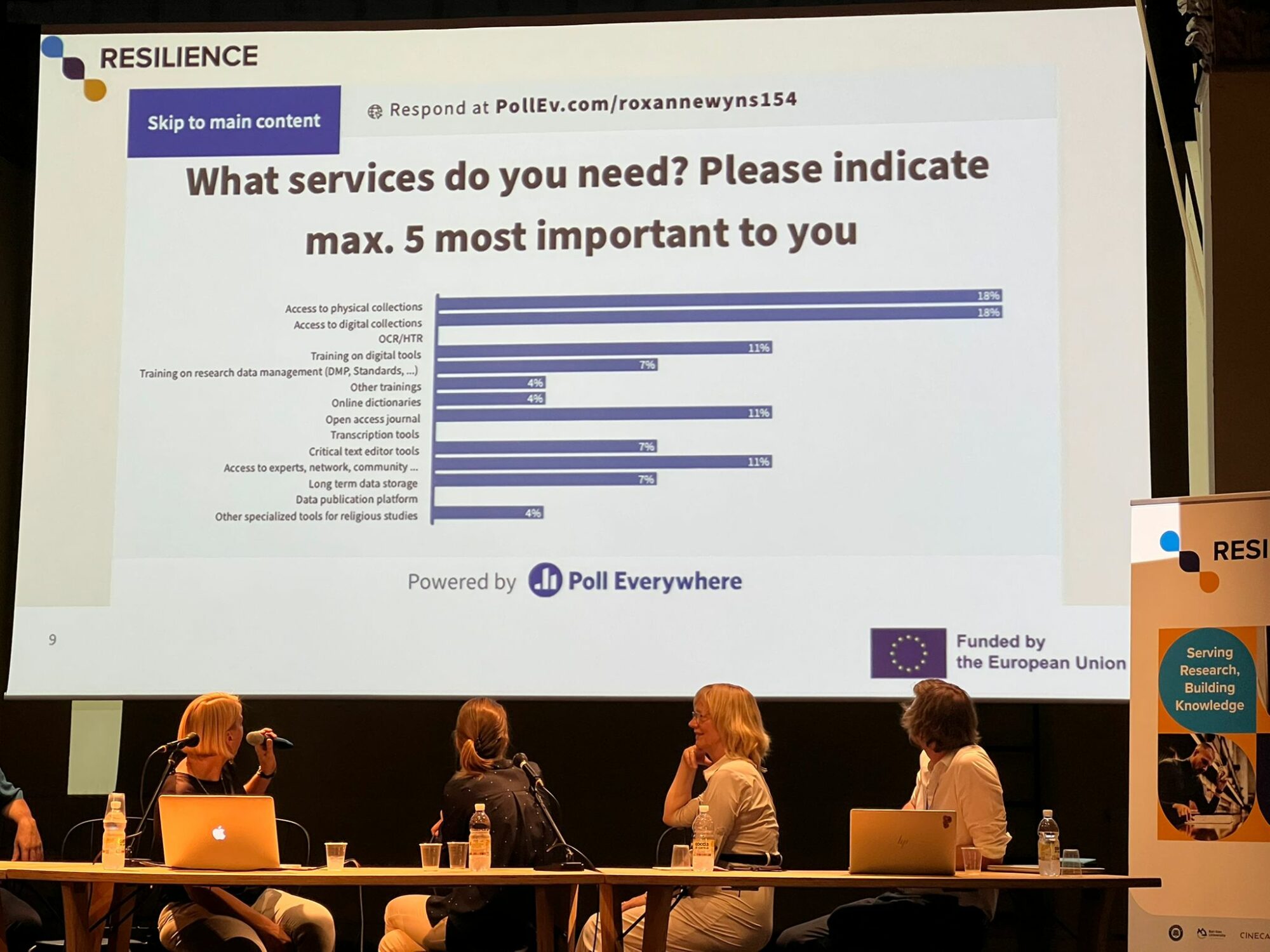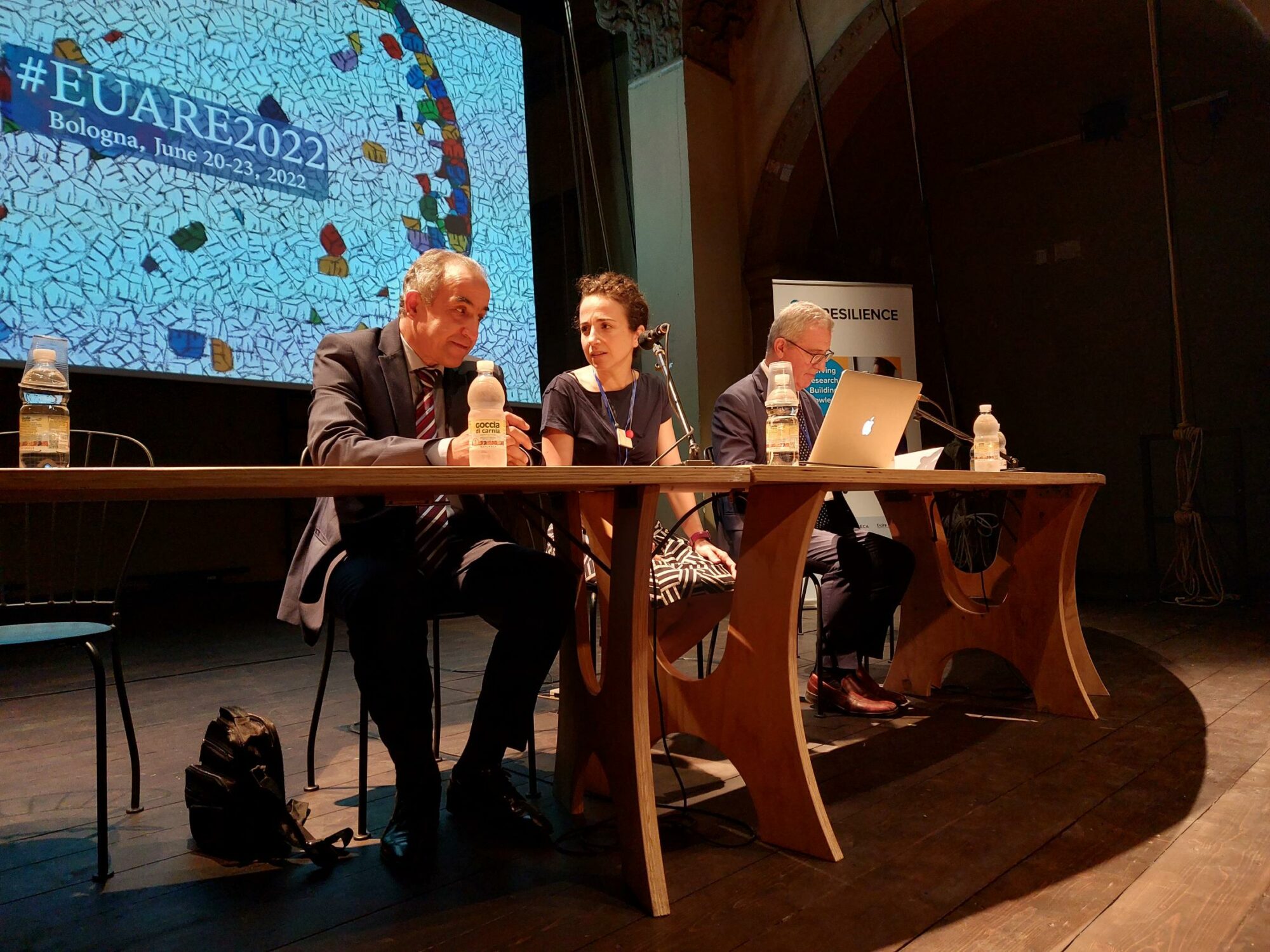Bringing in the Human Aspect
Building a research infrastructure for Religious Studies is not only about storing data and offering access to this data, but also about bringing in the human aspect. This was one of the insights shared during the "RESILIENCE Meets the Community" panel at EuARe 2022 and the subsequent roundtable.
Human Aspect
Of course, a research infrastructure brings together a lot that helps academics to do their research faster and better. But in doing so, the human aspect, for example in the form of meeting with experts, visiting a foreign library and the people working there, or building a network with other academics is just as important. Several suggestions were made from the audience after RESILIENCE staff presented the current state of the project including the services already available, such as the TNA Scholarship Program (where the human aspect becomes visible in the guidance of experts) and ReIReSearch.
What is Needed?
Attendees in the room were asked what services they especially needed and the answer was clear: access to both physical and digital collections. And this is indeed where RESILIENCE is focusing on, not only to serve academics but also to help non-academics to use this data. Indeed, current developments in the world call for a new way of thinking, to help people deal with this properly. The added value of a RI like RESILIENCE’s is that through better accessibility to research data it becomes possible to better analyze current developments and to develop new perspectives on it from which policy makers and others can benefit.

Political Dimension
The knowledge offered by researchers and offered in a research infrastructure will also play a role in politics. As stated by Mohamed Diouane, Vice President of the University of al-Qarawiyyin in Fez, religions can be seen as a sphere of interaction, in which reasoning plays an important role. For this reasoning, knowledge and education are essential. Also Evarist Bartolo, Minister for European and Foreign Affairs of Malta emphasized the importance of the connection of religious research and politics on “the road to reason” against war and nuclear threat. According to Francesca Cadeddu, Religious Studies can support the ongoing process of reflection by offering food for thought.
